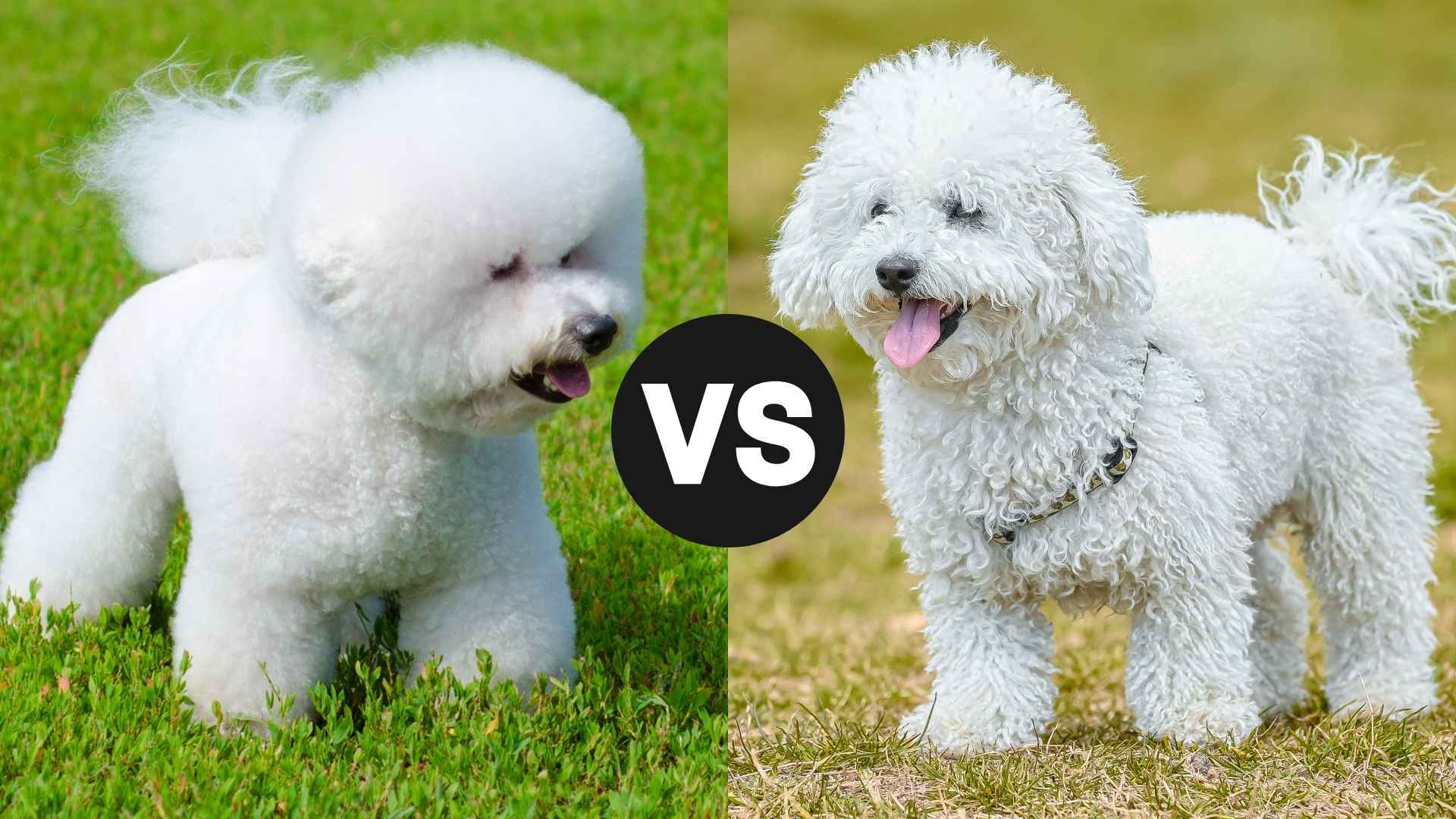Did you know that Poodles were originally bred as water retrievers, while the Bichon Frise spent centuries charming European nobility? That’s right—one was busy fetching ducks, and the other was busy being pampered in royal courts. Talk about two very different resumes!
At first glance, these two curly-coated canines might seem like twins, but don’t be fooled—each brings a unique flair to the dog world. The Poodle is the Einstein of the canine kingdom, while the Bichon is the ultimate social butterfly.
Beyond their undeniable cuteness, they have distinct needs, from grooming demands to energy levels. One thrives on mental challenges, the other just wants to be your cuddle companion.
So, if you’re torn between these two lovable breeds, you’ve come to the right place. Let’s break down what truly sets them apart!
Bichon Frise vs. Poodle
|
Feature |
Bichon Frise |
Poodle (Standard, Miniature, & Toy) |
|---|---|---|
|
AKC Size |
Small |
Standard, Miniature, and Toy |
|
Weight |
12-18 lbs (5.4-8.2 kg) |
Standard: 40-70 lbs (18-32 kg) Miniature: 10-15 lbs (4.5-7 kg) Toy: 4-6 lbs (1.8-2.7 kg) |
|
Height |
9.5-11.5 inches (24-29 cm) |
Standard: Over 15 inches (38 cm) Miniature: 10-15 inches (25-38 cm) Toy: Under 10 inches (25 cm) |
|
Bite Force (PSI) |
~200 PSI (Estimate) |
~235 PSI (Estimate) |
|
Speed |
~15-20 mph (24-32 km/h) |
~30 mph (48 km/h) (Standard Poodle) |
|
Coat |
Soft, curly, hypoallergenic |
Dense, curly, hypoallergenic |
|
Life Span |
14-15 years |
Standard: 12-15 years Miniature & Toy: 14-18 years |
|
Maintenance Cost |
Medium |
Medium to High (varies by size) |
|
Breed Cost |
$800 – $2,500 |
Standard: $1,500 – $3,000 Miniature/Toy: $1,000 – $2,500 |
|
Nutritional Needs |
High-quality small breed diet |
Varies by size: Small to large breed diet |
|
Trainability |
Highly trainable, eager to please |
Extremely intelligent, one of the easiest breeds to train |
|
Skills |
Companion dog, therapy work |
Hunting, retrieving, agility, therapy work |
|
Barking |
Moderate |
Moderate (Toy & Miniature may bark more) |
|
Grooming Needs |
High (frequent brushing, trimming) |
High (requires regular grooming & professional trims) |
|
Shedding |
Low (hypoallergenic) |
Low (hypoallergenic) |
|
History |
Originated as a companion dog in Europe, popular in royal courts |
Originally bred as a water retriever in Germany & France |
|
Origin |
Mediterranean Region (Spain, France, Belgium) |
Germany (developed further in France) |
|
Breed Group |
Non-Sporting |
Standard: Non-Sporting Miniature & Toy: Toy Group |
Bichon Frise vs. Poodle: Size and Dimensions
The Bichon Frise is the definition of a pocket-sized companion, standing at just 9.5 to 11.5 inches tall and weighing 12 to 18 pounds. This small dog may be petite, but don’t underestimate its personality—it’s a fun-loving fluff ball with an oversized heart.
Officially recognized by the American Kennel Club (AKC), the breed’s compact size makes it ideal for apartments, though its energetic nature means it still needs plenty of exercise.
On the other hand, the Poodle comes in three sizes: Standard, Miniature, and Toy, so pet owners can choose the best fit for their lifestyle. The Standard Poodle stands over 15 inches tall, with some reaching an impressive 70 pounds.
The Miniature Poodle, a favorite among active families, is a more manageable 10-15 inches tall and weighs 10-15 pounds. Meanwhile, Toy Poodles are true tiny treasures, standing under 10 inches and weighing as little as 4 pounds.
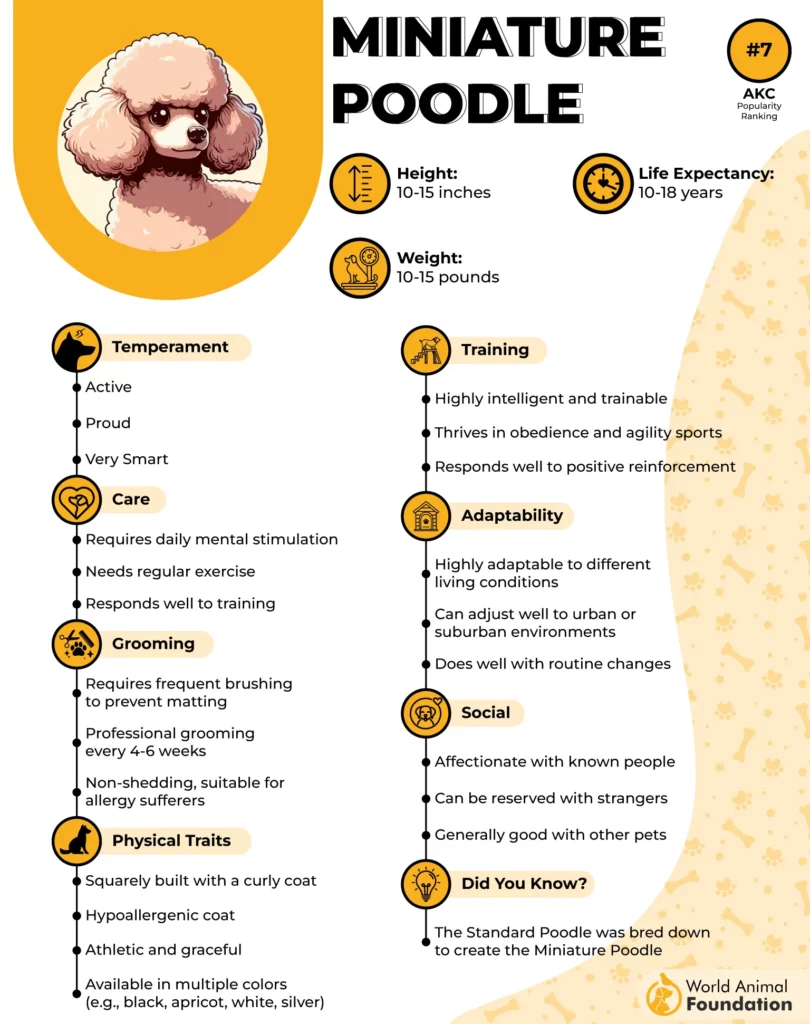
Both breeds have long legs and a light, agile frame, making them graceful and athletic. The Poodle, especially, is known for its elegant build, which contributes to its incredible speed and ability to perform tricks. While the Bichon Frise is small and sturdy, the Poodle has a more refined, slender physique.
For families with small children, both breeds are gentle, though Toy Poodles can be a bit more delicate. Despite their size, these dogs are incredibly loyal and thrive in loving homes. Whether you want a Bichon Frise puppy to cuddle with or a Miniature Poodle that can keep up with your adventures, both breeds offer the perfect combination of charm and intelligence.
Orvis suggests that the most important thing for pet owners to remember is that size impacts exercise and grooming needs. A Standard Poodle will need at least an hour of daily activity, while a Bichon Frise or Toy Poodle may be satisfied with shorter bursts of play. Regardless of size, both breeds are adorable, affectionate, and always ready to be your new best friend.
Bichon Frise vs. Poodle: Temperament and Character
If you’re looking for a fun-loving dog with an endless supply of affection, both the Bichon Frise and Poodle deliver. But while they share some personality traits, their temperaments have many differences.
Purina explains that the Bichon Frise is a happy-go-lucky small dog with a sweet and social nature. It thrives on companionship and is known for its adorable antics and ability to bring smiles wherever it goes. This breed is highly adaptable and gets along well with children, other dog breeds, and even cats.
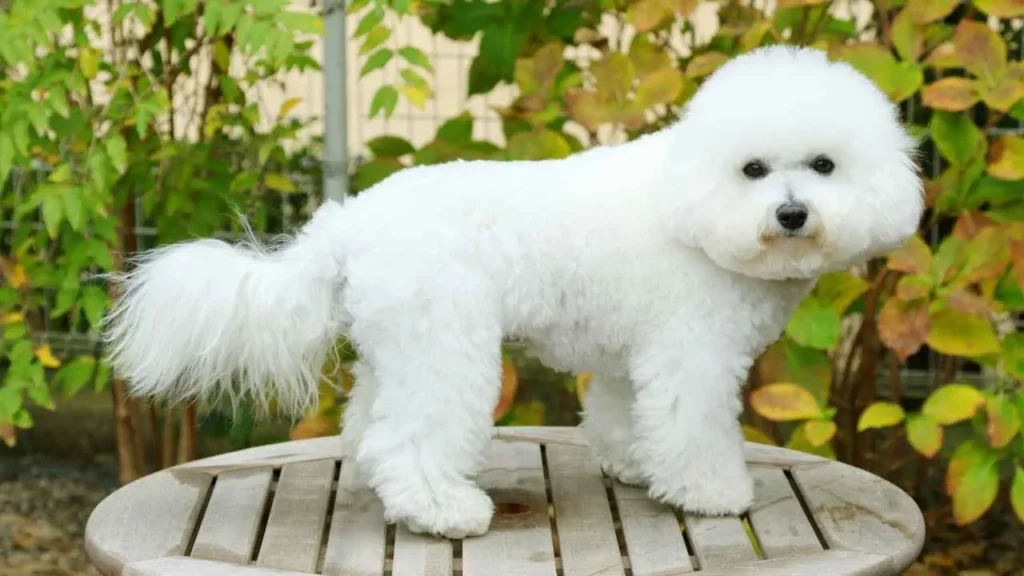
However, don’t ignore them for too long—Bichons can get their feelings hurt and may develop separation anxiety.
The Poodle, on the other hand, is one of the most intelligent dog breeds in the world. Whether it’s a Toy Poodle, Miniature Poodle, or Standard Poodle, this breed loves to learn and impress.
They are highly trainable and thrive on mental stimulation, making them excellent at tricks, house training, and even therapy work. Unlike the Bichon, Poodles tend to bond closely with their owners but can sometimes be a bit more reserved with strangers.
Both breeds have floppy ears and are known for their affectionate, people-pleasing nature, but Bichons are social butterflies, while Poodles are the intellectuals of the dog world.
If you want a dog that’s always ready to cuddle, the Bichon Frise puppy is your perfect match. If you prefer a quick learner who can master complex commands, the Poodle is the way to go.
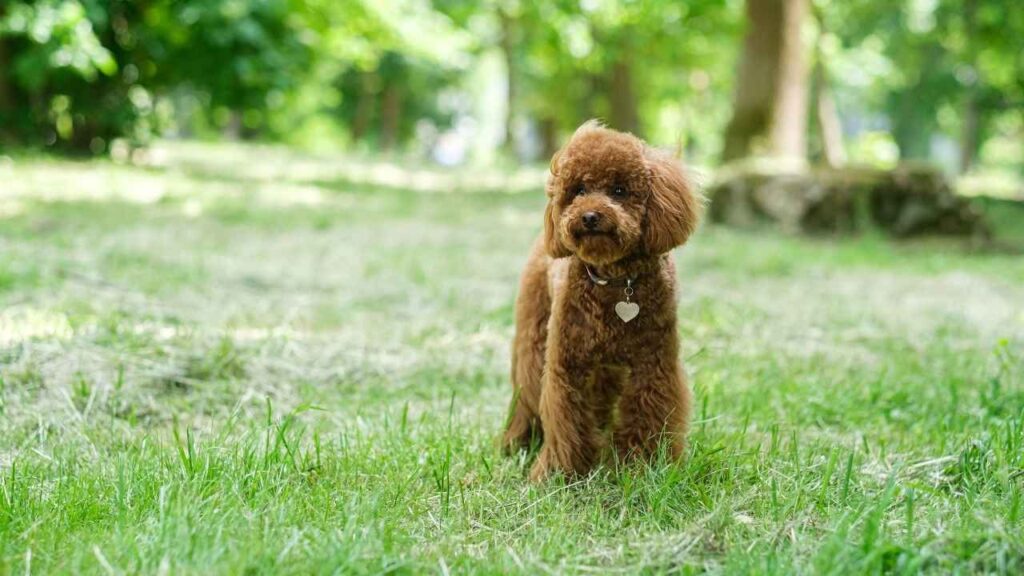
Regardless of personality differences, both breeds make wonderful pets for the right family. Their cheerful disposition and loyal nature make them excellent companions for first-time pet owners and experienced dog lovers alike.
Bichon Frise vs. Poodle: Ancestry and Lineage
These two adorable breeds may look similar, but their origins tell two very different stories. The Bichon Frise has a history as a charming companion, while the Poodle was bred for hunting and retrieving.
The Bichon Frise can trace its roots back to the Mediterranean, where it was a favorite of Italian sailors. These small, cheerful dogs traveled the seas, often serving as companions to merchants and explorers.
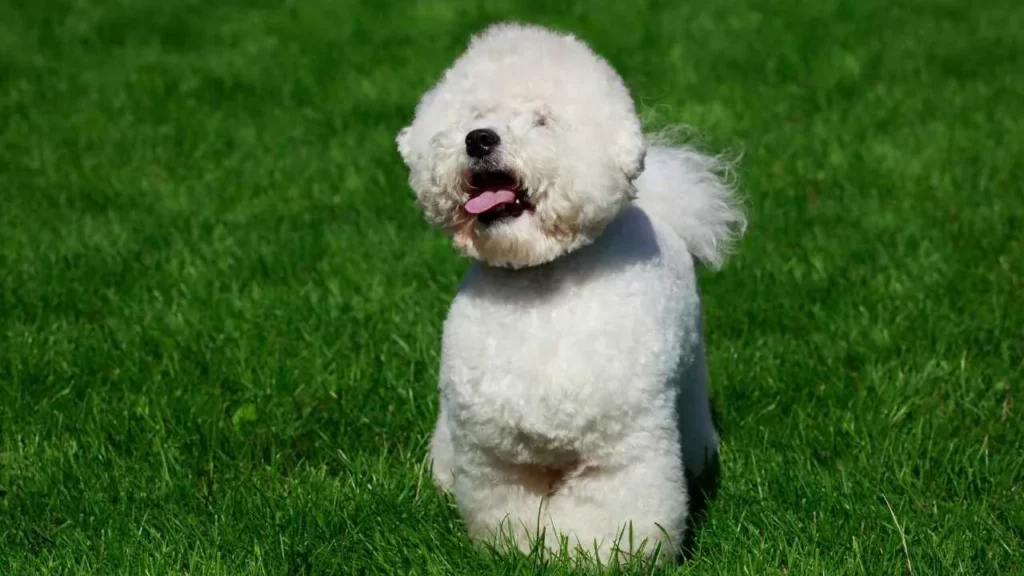
Over time, they became popular in European royal courts, earning their reputation as the national dog of France. The American Kennel Club officially recognized the breed in 1972, cementing its status as a beloved pet worldwide.
PetPlan mentions that the Poodle has a more athletic background. Despite its reputation as a fancy show dog, this breed was originally developed in Germany as a water retriever. Its curly coat protected it from the cold while swimming, making it a highly skilled hunting dog.
Over time, the breed was refined in France, where it became a symbol of nobility. The Standard Poodle was the original size, but Miniature Poodles and Toy Poodles were later bred for companionship.
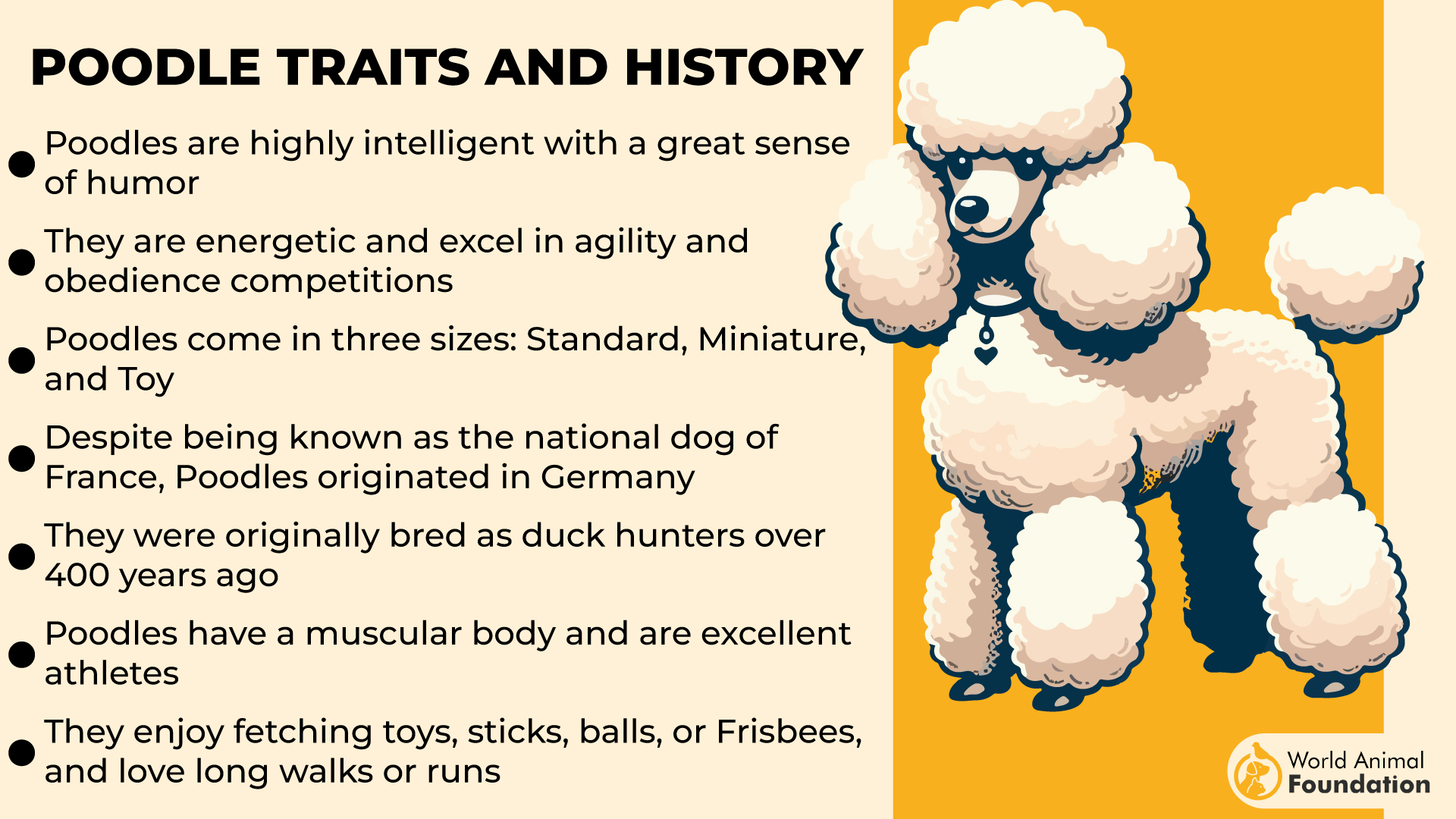
Both breeds have deep-rooted histories in Europe, but their purposes were quite different—one as a loyal companion and the other as an intelligent working dog. Yet today, both the Bichon and Poodle have transitioned into loving pets that bring joy to families everywhere.
Whether you admire the royal history of the Bichon Frise or the versatile skills of the Poodle, both breeds have earned their place as beloved household companions.
Bichon Frise vs. Poodle: Health and Maintenance
When it comes to health and maintenance, both the Bichon Frise and Poodle require attentive care, but each breed has its unique concerns.
According to PetMD, the Bichon Frise is generally a healthy pet, but it is prone to specific issues like bladder infections, joint issues, and eye problems. Their sensitive skin also makes them susceptible to allergies, so a well-balanced diet from a reputable breeder or vet-approved food is crucial.
Regular vet checkups can help prevent more severe conditions, such as heart defects or other diseases common in smaller breeds.
PDSA notes that the Poodle, regardless of size (Toy Poodle, Miniature Poodle, or Standard Poodle), also faces its share of health concerns. Standard Poodles are at higher risk for hip dysplasia, bloat, and joint issues, while Miniature and Toy Poodles may develop ear infections, eye problems, and dental issues. Because of their long legs, Poodles are also susceptible to injuries from jumping or rough play.
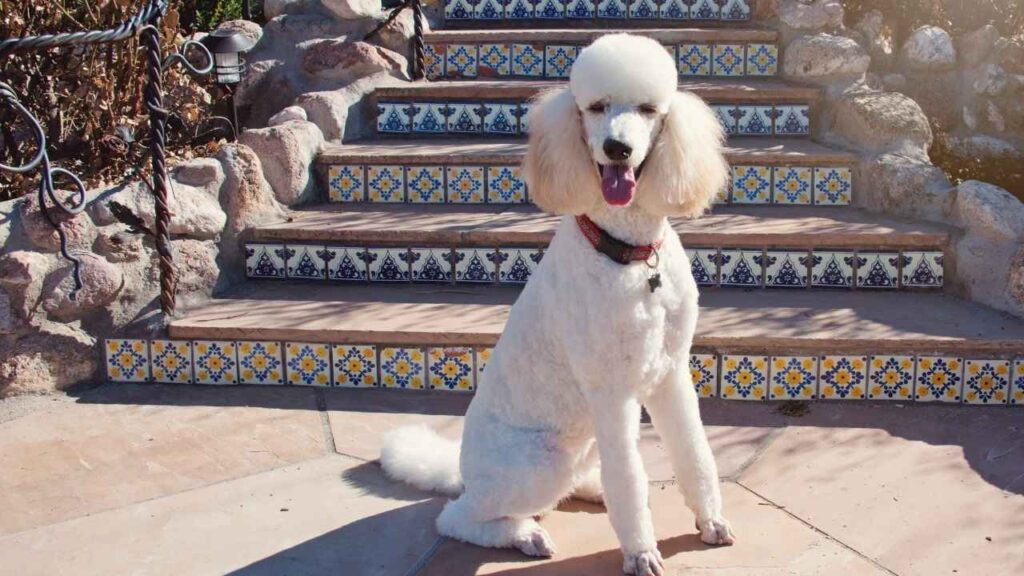
Grooming is a big part of maintaining both breeds. While their hypoallergenic hair doesn’t shed much, regular visits to a groomer are necessary to prevent matting. Owners should also clean their floppy ears frequently to avoid infections.
Exercise is another important thing to consider—energetic dogs like Poodles need at least an hour of daily activity, while Bichons are happy with moderate playtime.
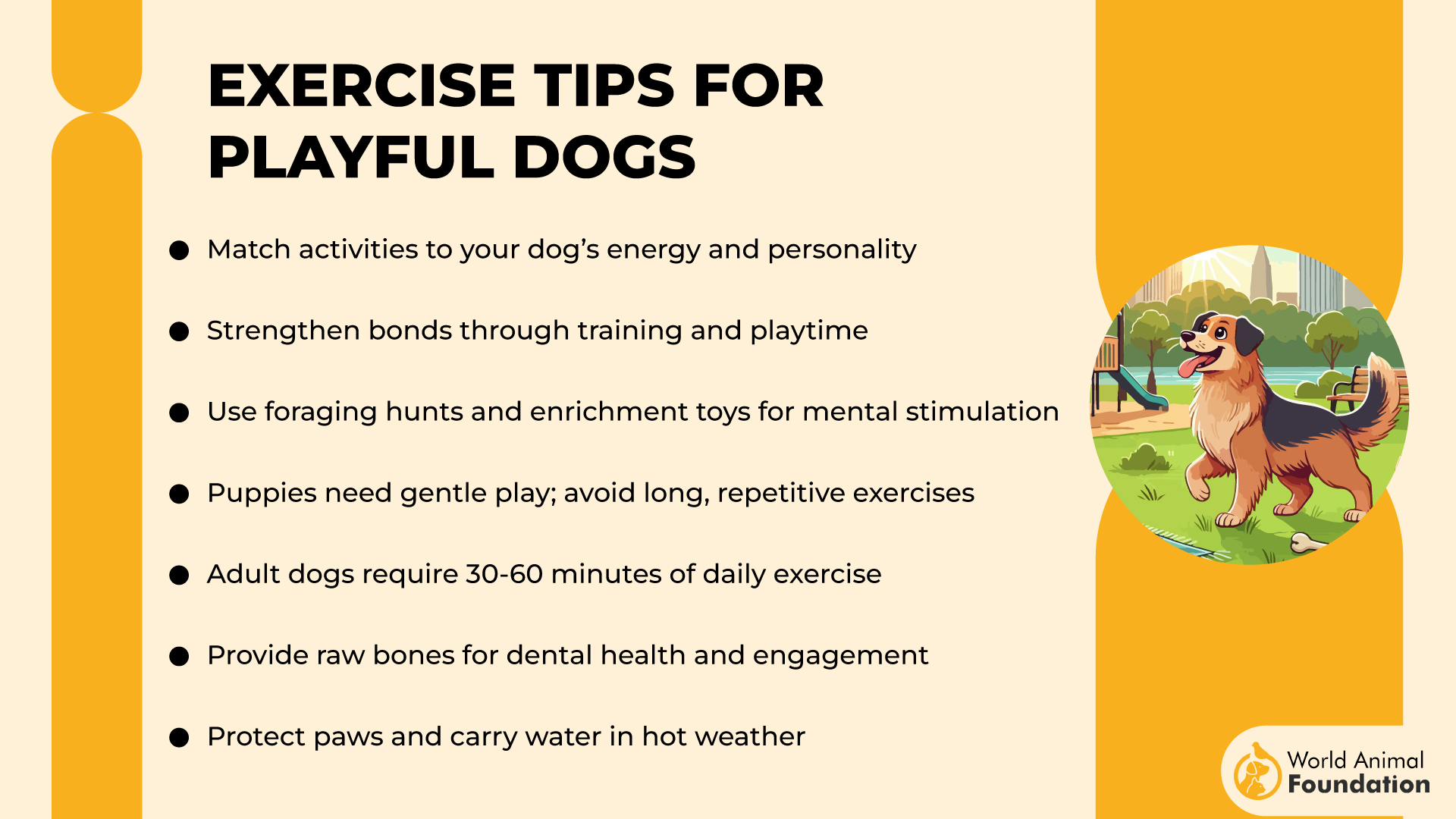
Both breeds need routine vet visits, a proper diet, and a loving home to stay healthy. While they are relatively low-shedding breeds, their high-maintenance coats and breed-specific health risks mean that pet owners should be prepared for some extra care.
Bichon Frise vs. Poodle: Life Expectancy
Both the Bichon Frise and Poodle are long-living breeds, making them excellent companions for those looking for a furry friend for many years.
The Bichon Frise has an average lifespan of 14 to 15 years, with some living even longer with proper care. A healthy Bichon Frise puppy from a reputable breeder can thrive well into its teens, provided it receives a nutritious diet, exercise, and regular vet care.
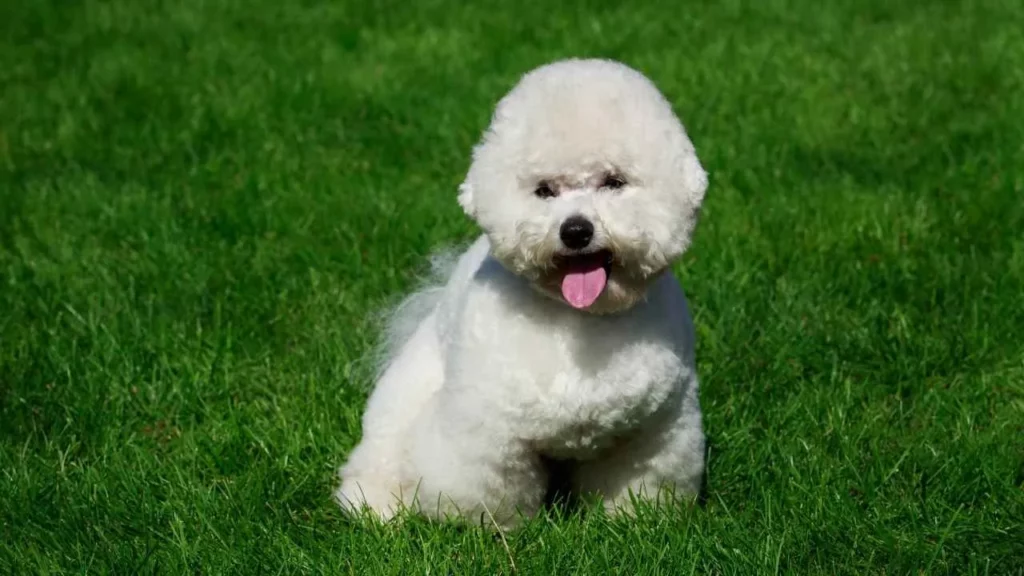
However, due to their small size, they are more vulnerable to bladder infections, joint issues, and heart defects as they age.
The Poodle’s life expectancy varies depending on size. Toy and Miniature Poodles often outlive their larger counterparts, with an average lifespan of 14 to 18 years. Standard Poodles, being larger, typically live 12 to 15 years.
Like Bichons, Poodles need proper nutrition, exercise, and preventive health care to avoid conditions like bloat, hip dysplasia, and other diseases.
A key factor in ensuring both breeds live long, happy lives is early health screening. A healthy pet starts with responsible breeding, routine vet visits, and plenty of love. Whether you choose a Bichon Frise or Poodle, both will reward you with years of companionship, loyalty, and joy.
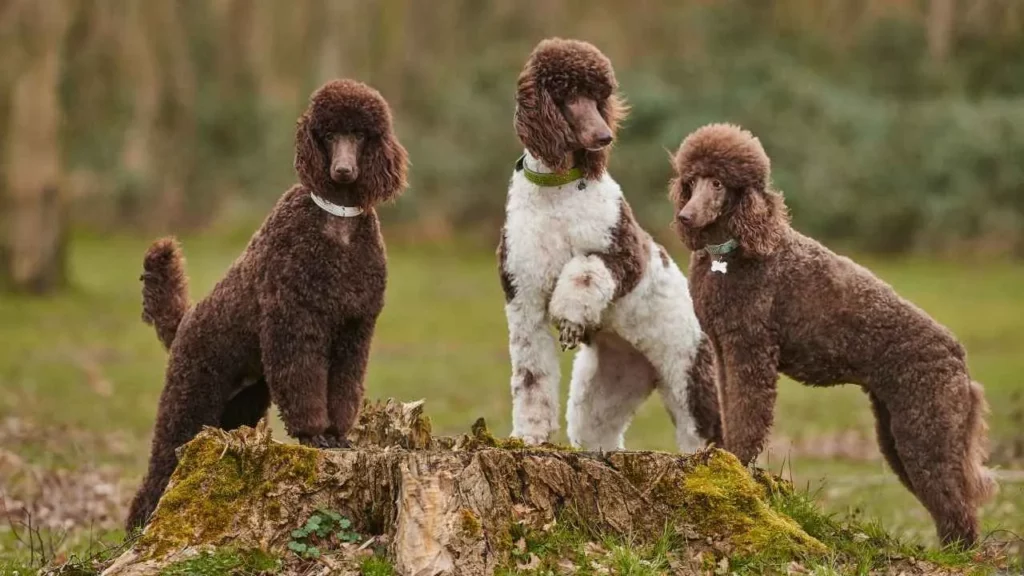
Conclusion
So, who wins the Bichon Frise vs Poodle showdown? The truth is—both breeds are champions in their own right! Whether you prefer the Bichon’s happy nature or the Poodle’s genius-level intelligence, one thing is certain: you’re getting an affectionate, healthy dog that will bring joy to your home.
The Bichon Frise is a playful little companion, perfect for families with kids or those looking for a cheerful lap dog. Meanwhile, the Poodle, in any size—Toy, Miniature, or Standard—is ideal for active parents who want an energetic, trainable companion. No matter which of these two breeds you choose, starting training at a young age will ensure a well-behaved and happy pup.
Still can’t decide? Consider adopting from a rescue! Many four Bichons, Maltese, and Havanese mixes are looking for their forever homes. Adopting is a fantastic way to welcome a loving animal into your family while giving them a second chance.
Ready to adopt or find a reputable breeder? Whichever you choose, one thing is certain—you’re in for a lifetime of love, laughs, and fluffy cuddles! 🐾


